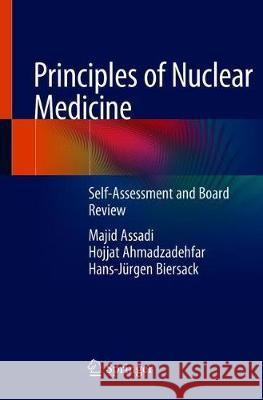Principles of Nuclear Medicine: Self-Assessment and Board Review » książka
topmenu
Principles of Nuclear Medicine: Self-Assessment and Board Review
ISBN-13: 9783319917009 / Angielski / Miękka / 2018 / 833 str.
This book is the ideal study tool for all who are preparing for national or international nuclear medicine exams and in addition represents a truly outstanding quick review resource.











